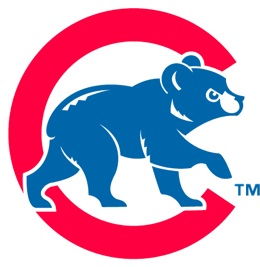 The Chicago Tribune’s Phil Rosenthal says one way to raise funds for a Wrigley Field renovation is selling shares to the public. There are two huge reasons why this will never happen: Major League Baseball would never allow it and the public doesn’t have $200 million sitting around to benefit the Tom Ricketts family.
The Chicago Tribune’s Phil Rosenthal says one way to raise funds for a Wrigley Field renovation is selling shares to the public. There are two huge reasons why this will never happen: Major League Baseball would never allow it and the public doesn’t have $200 million sitting around to benefit the Tom Ricketts family.
In a column today, he makes raising renovation money for Wrigley Field sound so easy. After admitting the Cubs will never be a public corporation — an idea that’s been floated and rejected — he then says Wrigley Field should be split off from the team:
But the ballpark, Wrigley Field, a 97-year-old landmark that needs to be ushered into the 21st century — surely that’s something Cubs backers could back. Separate the ballpark from the team, on paper at least. Set up a foundation. Something. Let the Ricketts family retain control of the subsidiary and sell shares in it to finance the rehab.
It wouldn’t be a complete solution, but it could be part of it.
He then makes an analogy to the Green Bay Packers selling stock to finance an expansion of Lambeau Field. But the analogy is deeply flawed: the Packers, an anachronistic public corporation since 1923, are set up to raise money via public offerings (they’ve done so four times in the past, with early efforts ensuring the existence of the team). They are also public in every respect: the team reports revenues ($242 million) and operating income ($9.8 million) annually, in an accounting to shareholders.
MLB, of course, is loathe to release any sort of financial information; things like revenues and operating income are guarded like state secrets. And we can’t see a way for Wrigley Field to be spun off from the Cubs in a way that a) keeps the Cubs in control (the Packers must seek the approval of shareholders for major investments, though the votes are largely perfunctory and via proxy) and b) totally isolates the finances of the Cubs from Wrigley Field. Indeed, it’s pretty clear the best financial and operational situation is where the team and the ballpark are under the same ownership: we’ve seen that time and time again with the Los Angeles Dodgers and the Toronto Blue Jays. There’s no way for the Cubs to raise $200 million on a public stock offering and then retain total control of a facility without some level of public accountability.
The appeal of such a financial plan is that it’s basically free money for Tom Ricketts and family. That’s it. It’s one thing for the Packers, a nonprofit run for community enjoyment, to ask for money to improve Lambeau Field. It’s another for a for-profit entity like the Cubs to ask for money to improve Wrigley Field. The team’s in no danger of moving anywhere, generates a ton of money (Forbes estimates team revenues at $258 million, with $23.4 million in operating income) and has no issues covering existing ballpark debt.
And, let’s point out the obvious: are the Cubs and Wrigley Field so beloved that folks would line up to give $200 million or so to Tom Ricketts? Let’s face it: attendance at Wrigley Field swooned in 2011 because fans were put off by the team and the ownership. Because you’d have to set up some sort of limit on the number of shares one individual can own so no one can take over the nonprofit, you’d need to have a broad base of folks buying shares. Let’s say you price shares at $200 and limit ownership to 100 shares. To raise more than $200 million (which you’d need to do to cover underwriting costs) you’d need to find at least 10,000 buyers and probably more like 18,000, as most fans wouldn’t pony up for a full hundred shares. Are there really 18,000 or so folks willing to spend some serious money to benefit the Ricketts? In this economy, and with current attitudes toward the team, we’re guessing no. All this plan does is sell personal seat licenses — without the seats.
—-
Share your news with the baseball community. Send it to us at editors@augustpublications.com.
Subscribers to the weekly Ballpark Digest newsletter see features before they’re posted to the site. You can sign up for a free subscription at the Newsletter Signup Page.
Join Ballpark Digest on Facebook and on Twitter!
